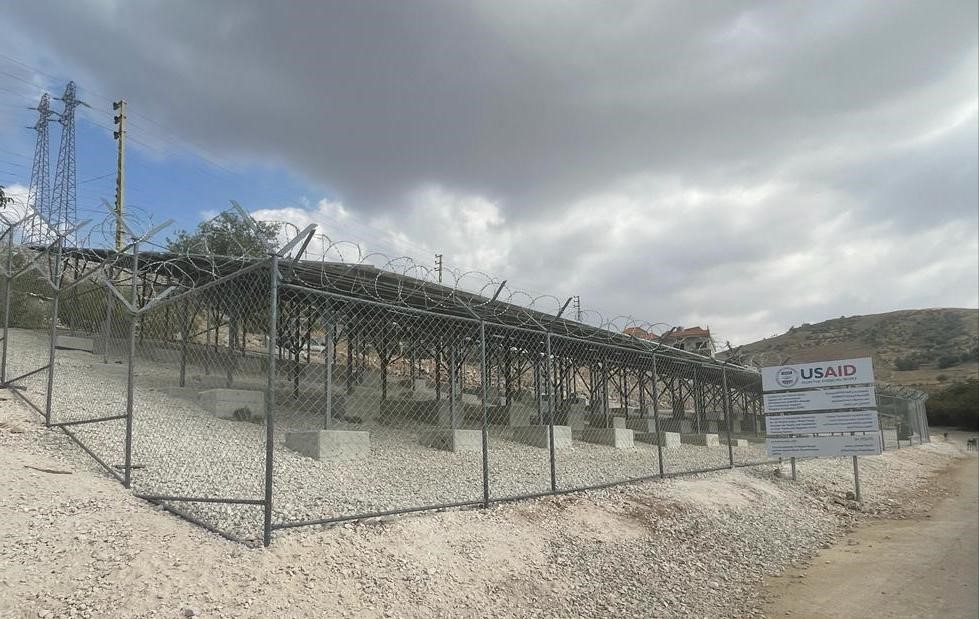USAID Solar Farm in Majdel Aanjar Continues to Provide Savings to Households and the Municipality
Majdel Aanjar in the Beqaa Valley is home to around 25,500 Lebanese residents and 32,000 refugees who rely on two main water wells. Prolonged state-electricity outages coupled with the large presence of refugees was causing severe water shortages in the community, leading to communal tensions.
In response, the USAID-funded Community Support Program (CSP) installed a solar farm to ensure the continuous operation of the town’s water pumping system, rehabilitated its pumping station, and upgraded its chlorination system. To ensure the sustainability of this renewable energy solution, CSP also trained staff from the municipality and Beqaa Water Establishment (BWE) on the safe operation and maintenance of the solar panels and chlorination system.
Since its completion in August 2022, the solar farm has operated for more than 2,575 hours, ensuring continuous supply of domestic water for 19,000 people (12,350 Lebanese and 6,650 refugees). Additionally, this intervention is generating $60/month in household savings that was previously allocated to trucked water – a significant amount considering the average monthly household income in Majdel Anjar is estimated at around $100. In January 2024, residents reported that such savings are now being used to cover children’s tuition fees and the purchase of fuel for heating during the harsh winter months.
“This project has not only improved living conditions of in Majdel Aanjar, but also reduced municipal electricity expenses to zero,” said Mahmoud Ajaj, Member of the Majdel Anjar Municipality.

